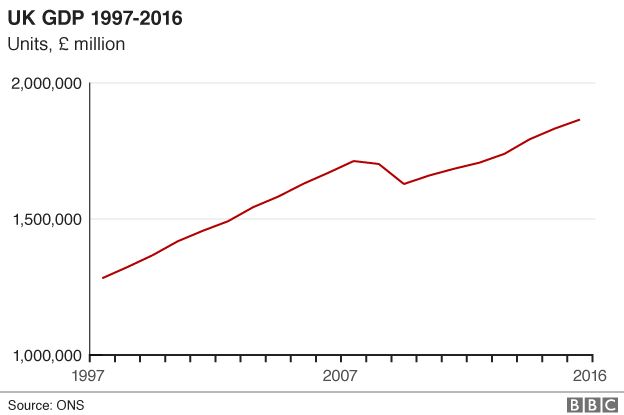Introducing in the new century
New Labour
 From May 1997, Tony
Blair's newly elected Labour government stuck with the Conservatives' spending
plans. The Chancellor, Gordon Brown, obtain a surname by some as the
"prudent Chancellor" and helped to inspire renewed confidence in
Labour's ability to manage the economy following the economic failures of
earlier Labour governments. One of the first acts that the new Labour
government embarked on was to give the power to set interest rates to the Bank
of England, effectively ending the use of interest rates as a political tool.
Control of the banks was given to the Financial Services Agency.
From May 1997, Tony
Blair's newly elected Labour government stuck with the Conservatives' spending
plans. The Chancellor, Gordon Brown, obtain a surname by some as the
"prudent Chancellor" and helped to inspire renewed confidence in
Labour's ability to manage the economy following the economic failures of
earlier Labour governments. One of the first acts that the new Labour
government embarked on was to give the power to set interest rates to the Bank
of England, effectively ending the use of interest rates as a political tool.
Control of the banks was given to the Financial Services Agency.
Labour also
introduced the minimum wage to the United Kingdom, which has been raised every
year since its introduction in April 1999. The Blair government also introduced
a number of strategies to cut unemployment, including an expansion of the
public sector. Unemployment was constantly below 1.5 million during the first
half of the 2000s, this data was a level not seen since the late 1970s,
although the government never succeeded in getting unemployment back into the
six figure tallies which were seen for most of the 30 years after the end of
World War II.
New century policies
At the beginning of
the century the Labour Party increased taxes and borrowing, all of it to obtain
money to spent in social policies, in special public services as the improve of
the National Health Service, which in the past suffers a notable rate of
under-funding.
The economy shifted
from manufacturing, which had been declining since the 1960s and grew on the
back of the services and finance sectors, while the public sector continued to
expand. The country was also at war with first Afghanistan, invading in 2001
and then Iraq, in 2003, this last proved controversial with the British public.
Spending on both reached several billion pounds a year and the government's
popularity began to slide, although it did manage to win a third general
election under Blair in 2005 with a reduced majority. Blair stepped down two
years later after a decade as prime minister to be succeeded by the former
Chancellor Gordon Brown, the change of leader coming at a time when Labour was
starting to lag behind the Conservatives (led by David Cameron) in the opinion
polls.
The legacy of Gordon Brown´s policies. Rising from crisis to world power-
Car evasion
 By this stage,
unemployment had increased slightly to 1.6 million although the economy
continued to grow, the UK was continuing to lose large numbers of manufacturing
jobs due to companies encountering financial problems or switching production
overseas to save labour costs. This was particularly evident in the car
industry, with General Motors and Ford having significantly cut back on UK
operations, while Peugeot (the French carmaker who had bought the
former Rootes Group
and Chrysler Europe operations in the late 1970s) had completely
withdrawn from Britain. These closures resulted in thousands of job losses, although
the biggest single blow to the car industry came in 2005 when MG Rover went into
liquidation. In Britain a lost of workers are employed by this firms, so the
evasion and delocalisation of the production, caused an increase in the
unemployment and rise the angriest of the population against the politics. This
was the largest collapse of any European carmaker in modern times.
By this stage,
unemployment had increased slightly to 1.6 million although the economy
continued to grow, the UK was continuing to lose large numbers of manufacturing
jobs due to companies encountering financial problems or switching production
overseas to save labour costs. This was particularly evident in the car
industry, with General Motors and Ford having significantly cut back on UK
operations, while Peugeot (the French carmaker who had bought the
former Rootes Group
and Chrysler Europe operations in the late 1970s) had completely
withdrawn from Britain. These closures resulted in thousands of job losses, although
the biggest single blow to the car industry came in 2005 when MG Rover went into
liquidation. In Britain a lost of workers are employed by this firms, so the
evasion and delocalisation of the production, caused an increase in the
unemployment and rise the angriest of the population against the politics. This
was the largest collapse of any European carmaker in modern times.
INTERESTING LINKS:
Speach of Tony Blair about Iraq Invasion: Video link
Timeline of Iraq war by BBC: Article link
Speach of Tony Blair about Iraq Invasion: Video link
Timeline of Iraq war by BBC: Article link

Comentarios
Publicar un comentario